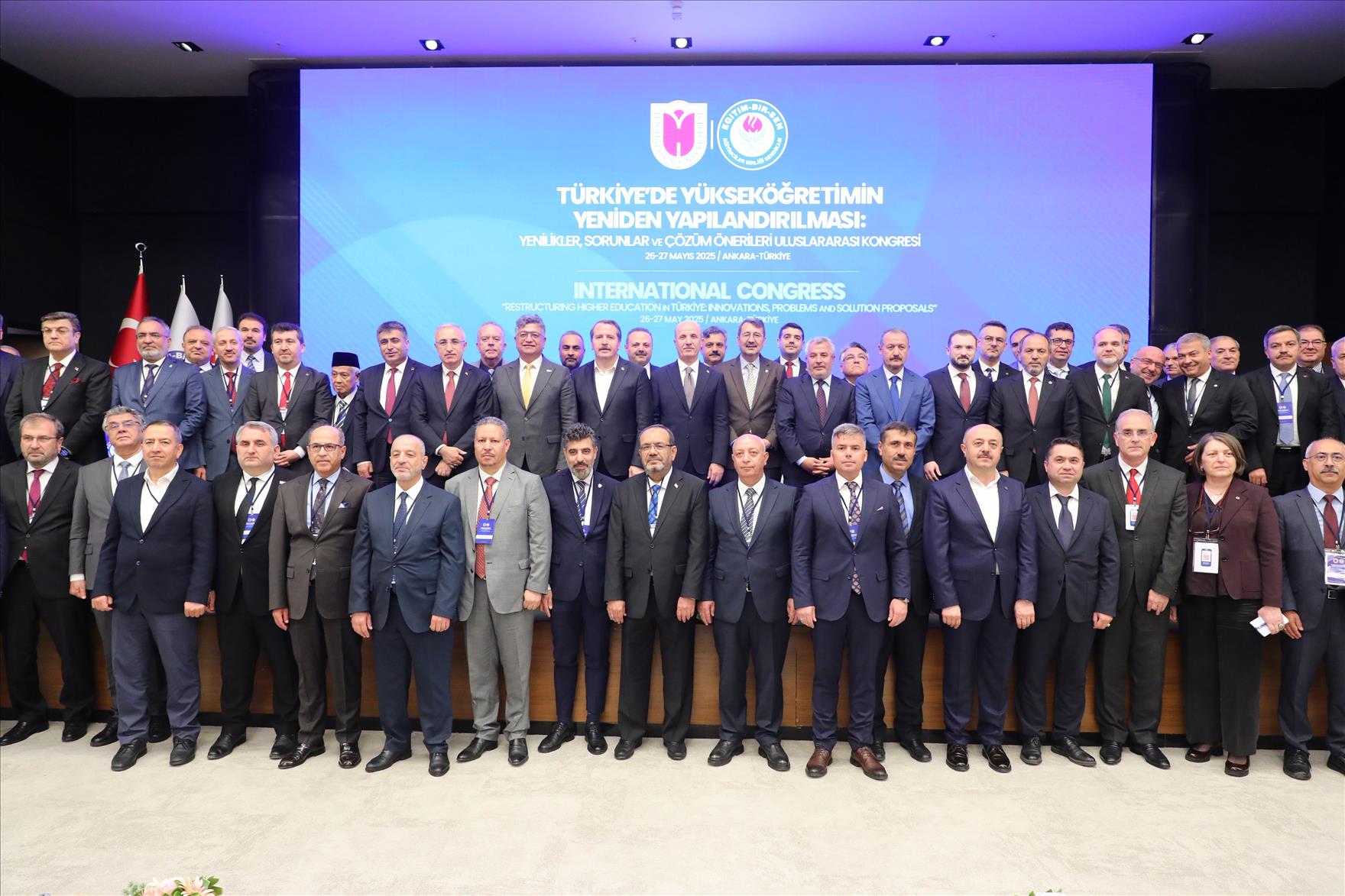Rector Güngör Attends the International Congress on the Restructuring of Higher Education in Türkiye
Rector of Pamukkale University (PAÜ), Prof. Dr. Mahmud Güngör, participated in the “International Congress on the Restructuring of Higher Education in Türkiye: Innovations, Challenges, and Solution Proposals,” jointly organized by the Educators’ Union (Eğitim-Bir-Sen) and Ibn Haldun University. The congress focused on structural reforms in Turkish higher education, offering significant evaluations and recommendations for future directions.

Prof. Dr. Mahmud Güngör, Rector of Pamukkale University (PAÜ), took part in the “International Congress on the Restructuring of Higher Education in Türkiye: Innovations, Challenges, and Solution Proposals,” which was organized in collaboration with the Educators’ Union (Eğitim-Bir-Sen) and Ibn Haldun University.
Prior to the congress, Rector Güngör held discussions with the President of the Council of Higher Education (YÖK), Prof. Dr. Erol Özvar, Rector of Ibn Haldun University, Prof. Dr. Atilla Arkan, and the President of Eğitim-Bir-Sen, Ali Yalçın. During the event, significant evaluations were shared concerning the future of higher education, structural reforms, and proposed solutions.
YÖK President Prof. Dr. Erol Özvar stated:
“One of our foremost objectives is to elevate our universities to higher ranks globally and to enhance their value as global academic brands.”
In his address at the congress, Prof. Dr. Özvar emphasized:
“As the Council of Higher Education, we are committed to building a system that is grounded in collective wisdom, prioritizes social benefit, is driven by scientific excellence, and centered on human development. I hope that this congress, organized in collaboration with Eğitim-Bir-Sen and Ibn Haldun University, yields lasting benefits for our country.”
Prof. Dr. Özvar further added:
“In recent years, we have developed a comprehensive vision to make Turkish higher education globally competitive, inclusive, and of high quality. This vision aims for our universities not only to be centers of knowledge production but also key drivers of development, societal transformation, and international cooperation. The pioneering international cooperation models developed in our country go beyond academic collaboration; they are designed around mutual understanding, cultural interaction, and joint development. Turkish higher education has become a vital conduit of scientific diplomacy in strategic regions such as the Balkans, Central Asia, Africa, and the Middle East. Elevating our universities to higher global rankings and establishing globally recognized academic brand value remains among our top priorities. The positive outcomes of our efforts are reflected in international university rankings—currently, seven Turkish universities are ranked within the top 500, with two of them among the top 300. Our goal is to increase this number to at least ten within the top 500 and to see at least one Turkish university in the top 100 in the coming years.”
Speaking on the humanitarian role of Turkish universities, Özvar added:
“A genocide is being committed in Gaza. We have opened our universities to Palestinian students whose institutions have been destroyed and who have been forcibly displaced. Turkish universities have also extended their support to students from universities in regions such as Sudan, where ongoing internal conflicts have led to the closure of institutions and the displacement of students abroad.”
